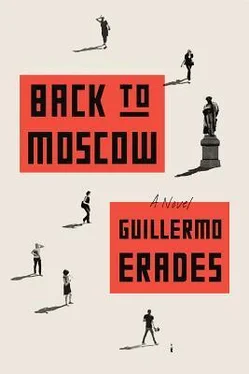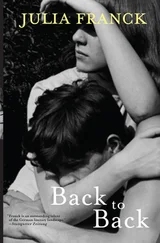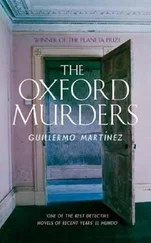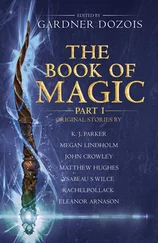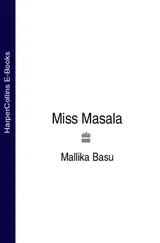It’s funny how the same episode of one’s own life, viewed from different moments in time, acquires a different significance. Later on, after she’d left, I saw that morning, and Katya’s pregnancy, not as a storm threatening to wreck my existence, but as a missed opportunity to start a new life.
But when she makes the announcement all I know is that Katya and I are not going to stay together much longer. Even if we haven’t worked out the details of our separation — or indeed spoken about it — we’re both aware that our cohabitation is a convenient and temporary arrangement, that, sooner or later, Amsterdam will come to an end. As far as I understand, we’re both fine with this.
‘This was not planned,’ I say, once I’ve realised the gravity of the situation.
‘So what?’ Katya says. ‘We can go ahead with it. I was planning to have children some day. It’s as good a moment as any.’ She’s sitting upright, holding the cup of tea with two hands, her long black hair cascading over the green T-shirt. Her tone is neutral,her voice and body language unchanged from our previous conversation.
‘But we hadn’t planned this,’ I insist.
‘You can’t plan everything in life,’ she says. ‘It’s destiny.’
In the beginning, when Katya had just moved into my flat, she had mentioned a couple of times the possibility of a long-term relationship, even hinting at marriage. But I hadn’t shown much enthusiasm for the idea and she’d never raised the issue again. Until that rainy Saturday morning.
‘You can choose your own destiny,’ I reply. I stand up, overcome by an urge to clear breakfast leftovers from the table. ‘There are so many things I want to do.’
‘It’s not the end of your life,’ she says. ‘You can be a father and still do things.’
‘It’s not the same.’
‘What’s different?’ she says. ‘It’ll be me taking care of the baby.’
‘I’m too young.’
‘Too young for what? You are twenty-four, a perfect age to start your own family.’
‘Maybe in Minsk,’ I say. ‘Not in Europe.’
We talk about it all day. To me, her refusal to acknowledge that we have a choice doesn’t seem the result of a moral dilemma. Uninitiated in the Russian notion of destiny, my feeling is that she just can’t be bothered.
On Monday, I accompany Katya to a private clinic, where the medical procedure is explained to us. The best method, we’re told, consists of forcing a miscarriage with a load of hormone pills. Katya seems relieved that the procedure doesn’t require surgery.
Then, the night before taking the pills, Katya asks me if I’m sure I don’t want to have the baby. Except she doesn’t say the baby — she says our baby. At first, this irritates me. Hadn’t we already taken a decision? But then I realise that, for Katya, asking me one last time is more of an obligation than genuine doubt.
‘I’m sure,’ I say, trying to make things easier for her.
In the end Katya spends two days in bed with cramps, vomiting and crying. She drinks vodka. It hurts to see her like that — and I wish I could share some of her physical pain so that I’d stop feeling like the perpetrator of an unjust punishment. I stay next to her, trying to cheer her up, and, when everything’s over and she’s feeling better, I take her to an expensive Indonesian restaurant we’d always wanted to try, down on the main street. That night, over dinner, we don’t talk much. A week later the whole issue is, as far as I can tell, forgotten. She never mentions it again.
A few months later, Katya is gone and I can’t stop thinking about that Saturday morning. Unable to go back, I’m on a plane to Moscow.
ABOUT A HUNDRED SOLDIERS had been killed. At first, the news said the helicopter had crashed after a technical failure. Then, as the hours passed, the story started to change and, by Wednesday night, two days after the crash, they were no longer talking about an accident — it was a terroristicheskiy akt.
Tatyana and I were eating take-out pizza on the couch as we watched the news. The heavy transport helicopter, they were now saying, had been hit by surface-to-air missiles while carrying more than a hundred and forty Russian soldiers. The fatal missile had hit one of the engines as the helicopter was approaching a Russian military base near Grozny. The helicopter had then fallen onto the minefield that surrounded the base and, as a result, some of the survivors who had tried to escape had been blown up by the mines.
‘Oh Bozhe,’ Tatyana said. God. She was almost in tears.
An expert was saying that, according to investigators, the doors of the helicopter had jammed after the crash and the soldiers had been trapped inside the burning wreckage. Only the crew and about thirty soldiers, who had managed to escape through a small hatch, had survived the attack. The news anchor was referring to the incident as the ‘new Kursk’, in reference to the sinking of the nuclear submarine two years earlier, in August 2000, during my first summer in Moscow. The Russian president, they said, had declared a day of mourning.
Suddenly, in the middle of the news bulletin, which I was watching attentively, Tatyana wiped her hands, took the remote control from my side of the coffee table and flicked through the channels, stopping at Kanal Kultura, which was showing Russian ballet. This was unusual. Tatyana rarely touched the remote control.
‘I want to know what happened,’ I protested.
‘We know what happened,’ she said. ‘I can’t watch it any more.’
I could see in her face that she was deeply disturbed by the news. We had just been talking about the possibility of moving to Siberia, perhaps soon after the arrival of the baby. Maybe she felt the pain of those mothers who were mourning at that very moment across Russia.
‘Let’s watch something else,’ she said. ‘Please.’
As we watched a bunch of ballerinas hopping across the stage to the sound of what I guessed was Tchaikovsky, I wondered how many people in Moscow had switched channels, or looked away from the horrifying images of the helicopter burning with its human cargo inside. Although — now that I think of it, so many years after that evening — I’m no longer sure if I saw the grainy images of the burning helicopter with Tatyana, or if I saw them later on, when I checked old footage on the Internet, trying to understand what had been going on in Chechnya during my time in Moscow.
THE METRO SPEEDS THROUGH the tunnels, crowded, rocking passengers from side to side. The windows are open, the noise deafening. It feels as if the wagon is about to derail, hit a wall. Then the train brakes with ferocity, an invisible force pushing passengers towards the front, and stops at once. Across the carriage, a woman is sitting on the bench, holding a little boy who stands between her knees. They are everywhere. Not only in the metro. In the streets, in shops, in restaurants. Children of all ages. Even during my morning walks, I see children’s playgrounds I hadn’t noticed before, with sandpits, swings and slides — hidden in the courtyards of central Moscow.
As the train starts to move again, I grab the handrail. The metro clanks through the tunnels. Everybody is silent, reading books or magazines or gazing at the floor, minding their own business. It’s only a few weeks since Tatyana told me about the baby and I hardly recognise myself.
In the days after Ris i Ryba I’d started to notice how my mind felt unexpectedly clearer, unclouded. Things I’d long held to be essential no longer seemed important. The thorn of Lena, for instance, which had been lodged inside my chest ever since the Boarhouse, disappeared at once; the pain of Lena turned into a memory of the pain. As if the person who had been crying outside the Boarhouse hadn’t been me, but rather a fictional character in a book I’d read.
Читать дальше
